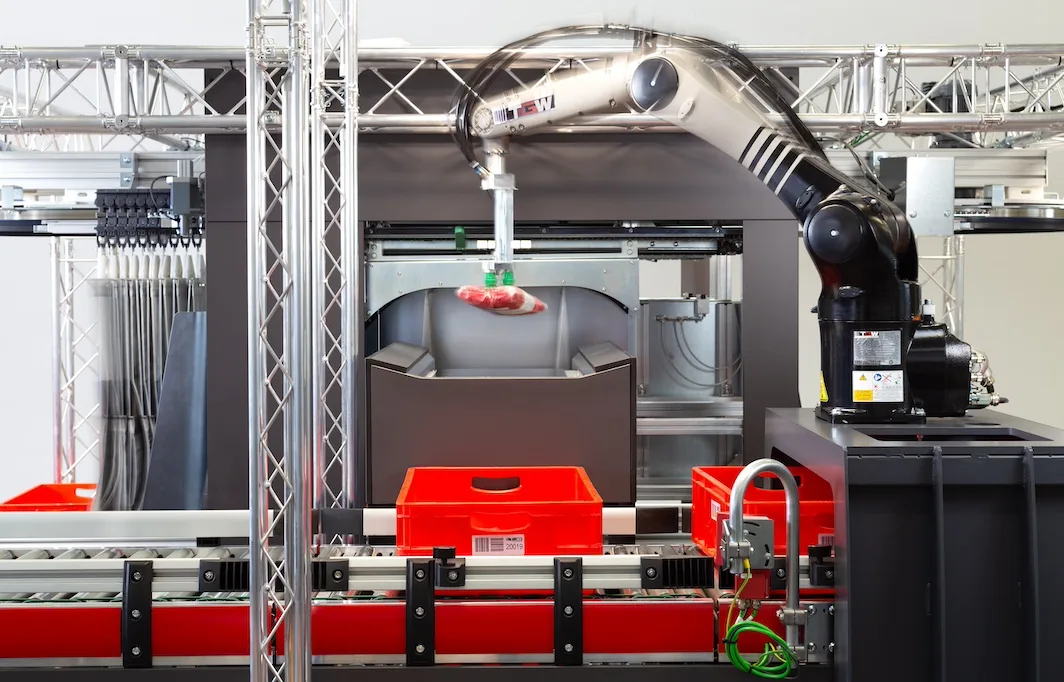TGW looks to the future
It was my great privilege to talk with David Hibbett, the CEO of TGW Northern Europe ahead of a major brand revamp for the leading systems integrator.

By Simon Duddy, Editor, Logistics Matters
I CAUGHT up with the TGW Northern Europe CEO David Hibbett in late January to discuss upcoming developments at the company, and reflect on the automation market, past, present and future.
Simon Duddy: What can you tell us about the rebrand planned for TGW?
David Hibbett: On a personal level, I think it is an exciting step. We are modernising the brand to bring it closer to how we’re trying to position ourselves. We are both a foundation based company and we deliver cutting-edge, high performance intralogistics systems for our clients. It’s not binary, you can have these things together.
SD: Is it shaping up to be an exciting year for TGW?
DH: It is. A key part of this is our expansion in the USA. We have been in the US for a number of years now, but we’ve really started to step up, and we’ve seen significant growth in this last calendar year. This is something we hope to continue. For example, we’re delivering a number of industrial automated sites for one of the country’s largest food service businesses in the next two years. We are also commissioning a system for a premium clothing brand, as we speak.

In addition, we’ve made some really great strides in grocery. This year, we hope to make announcements of exciting partnerships with significant grocers across regions.
SD: What do you see as key trends in automation and logistics?
DH: Robotics has become an integral part of logistics, with a major shift being the intelligence behind it and how that intelligence is applied.
For us, the focus is on vision-based AI systems. When you look at the challenges of robotic picking, the issue has never really been the physical robot itself. The main challenges lie in vision systems and AI processing power. We are seeing significant investment in this area, for example, with NVIDIA’s Project GR00T.

At TGW, we are also investing in this approach for our robotic picking solutions. We have developed a hybrid model that combines pre-populated data and traditional programming with machine learning, using vision-based systems. Essentially, the robot observes a human picking and learns from it.
Another exciting development is progress in humanoid robotics. While it may seem like science fiction, AI is playing an increasingly important role in industrial robotics, driving advancements.
We are also seeing innovations in diagnostics, which are particularly valuable for companies with existing automated systems that may need to adapt as their business evolves. The key is optimising system performance. In our field, data-driven software can create a digital twin of the system, allowing businesses to replay the day’s operations, identify performance highs and lows, and continuously optimise. TGW has even launched a spin-off company that leverages software to provide insights into workforce deployment within a facility, not just the equipment itself. Diagnostics, for us, serve as a continuous improvement tool.
Finally, another key trend to watch is the evolution of modular robotics. As the technology matures, customers will increasingly expect the same level of performance as traditional automation.
SD: You outlined several exciting solutions at LogiMAT 2024 on the theme of flexibility. How have those developed?
DH: Our partnership with SafeLog on mobile robots has hit the ground running, we’ve placed a number of bots into some quite significant projects. Culturally SafeLog and TGW are similar, and we’re developing diverse applications, such as smaller tote based AMRs as well as larger pallet carrying AMRs.
TGW SmartPocket, our revolutionary pocket sorter, is being developed in beta projects with partners. We’ve had several Innovation Days to discuss the technology with our existing clients, and it’s been very well received. The interesting thing is when you talk to some of your clients, they see it differently, and they help evolve it to other applications.
For this year’s LogiMAT, we had dedicated areas for robotics and software, as well as a corner focused on our foundation status.
SD: How is the UK market looking?
DH: In the last calendar year, we think we probably were the market leader in order intake. We certainly took our largest order intake for the UK, and this year we’ll exceed it again. I think the market’s buoyant. Major projects included one completed with Urban Outfitters.
SD: How do you reflect on the changes you have observed across your career in automation?
DH: I will be 50 this year and I started when I was 19, when automation was restricted mainly to pallet warehousing. Goods-to-person technology had started, but it was still relatively small. Twenty years ago, a big order might be valued at £15 million. I still get astounded by the barriers that get broken. The project values are climbing and climbing and it is not unusual for a single order to be worth £200m.
Globally, I think we are in the era of the mega order. What you’ve got is a number of very large customers who require transformation projects, which span numerous large sites. You could be talking about projects with a total value of around £1bn, for example.
SD: The automation market is well into a mature phase.
DH: Indeed, and that makes the retrofit market important also. We’re getting a large amount of requests asking us to modify and enhance equipment that was installed 15 or 20 years ago. These systems were built to last. It’s a question of sustainability also, if the business requirement has not changed so much, you can prolong the lifetime of these assets.
SD: You’re not just shifting equipment, you’re providing solutions.
DH: Exactly. Our customers are experts in what they do, selling food, selling clothing, and so on. They are looking for expertise and know-how from us, not simply solid technology.
For more information, visit www.tgw-group.com







